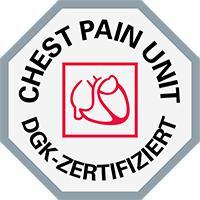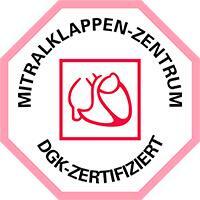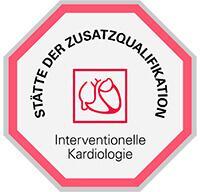According to statistics, heart failure is detected in 3% of the world's population. The number of heart failure patients escalates to 10% as people get older. Since the condition is quite prevalent, it is necessary to learn about its features and peculiarities of therapy for it.
Content
- Classification
- What causes heart failure?
- Symptoms of the heart failure
- Diagnostics of the heart failure in Germany
- How is heart failure treated in Germany?
- Rehabilitation after treatment
- Recommendations for patients with the heart failure
- Hospitals for treatment in Germany
- The cost of treatment in Germany
- Treatment with Booking Health
Classification
Traditionally, the basis for risk assessment is classification, meaning the distinction of clinical forms, stages, degrees of severity. Currently, the most common, the original classification principle is the division of cases of heart failure arising for the first time, and episodes of acute decompensation of heart failure, which existed before. A first-time heart failure is usually based on sudden pathological conditions (myocardial infarction, tachyarrhythmia, myocarditis, acute valve dysfunction, etc.), in which treatment of these diseases is possible and often effective, along with heart failure correction. In common cases of heart failure, the treatment of which in most cases should be based on the means of drug correction of the condition, if the underlying diseases are not amenable to radical correction.
Currently, the following clinical forms of heart failure are distinguished, described in accordance with guidelines on diagnosis and treatment of acute and chronic heart failure:
- Deterioration or decompensation of chronic heart failure (peripheral edema/congestive changes): usually there is gradual worsening of previously detected chronic heart failure, there are signs of systemic and pulmonary stasis. Low blood pressure on admission means a poor prognosis.
- Pulmonary edema: patients have severe respiratory distress, tachypnea, and orthopnea. Oxygen saturation is usually less than 90% on self-administered breathing before starting oxygen treatment.
- Hypertensive heart failure: symptoms due to high blood pressure, and the functional state of the left ventricle is usually not significantly impaired. Symptoms of sympathicotonia with tachycardia and vasoconstriction are observed. With proper treatment, the condition goes away quickly. Hospital mortality is low.
- Cardiogenic shock: involves tissue hypoperfusion, provided that the preload (filling of the heart) and rhythm disturbances are corrected. There are no clear hemodynamic criteria, but usually, blood pressure is reduced with no or reduced urine output. Heart rhythm disturbances occur frequently.
- Isolated right ventricular heart failure is characterized by low cardiac output syndrome in the absence of pulmonary congestion, but with increased pressure in the jugular veins, with or without hepatomegaly, with low left ventricular filling pressure.
What causes heart failure?
It occurs as a major manifestation of almost all heart diseases, including coronary atherosclerosis, myocardial infarction, acquired heart valve defects, congenital heart defects, arrhythmias, and cardiomyopathies.
The processes that make up the mechanism of left ventricular heart failure are down to:
- Influencing the heart contractility (heart attack, transient myocardial ischemia, mitral or aortic valve failure, dilated cardiomyopathy)
- Disturbing left ventricular filling (mitral valve stenosis, cardiac tamponade, hypertrophic cardiomyopathy, left ventricular hypertrophy).
In turn, left ventricular heart failure causes the right ventricular one, which in this case is explained by increased afterload due to left ventricular defect and increased pulmonary vascular resistance.
Symptoms of the heart failure
The most often reported symptom by patients is dyspnea on exertion, which is associated with venous congestion in the lungs or low cardiac output. As the disease progresses, dyspnea may also occur at rest.
Heart failure is often accompanied by orthopnea, nocturnal attacks of cardiac asthma, and nocturnal cough. Orthopnea is difficulty breathing, which decreases when sitting up. This symptom is provoked by the redistribution of blood from the abdominal organs and lower limbs to the lungs. In some cases, orthopnea makes patients sleep in a sitting position.
Nocturnal attacks of cardiac asthma reported by patients imply episodes of dyspnea during nighttime sleep. This symptom is seen in patients who are in the supine position when fluid from swelling in the lower limbs enters the bloodstream. Nocturnal cough is also a symptom of blood stasis in the lungs. Sometimes, hemoptysis may be observed, which is a result of a rupture of the bronchial veins due to their fullness.
Patients also experience confusion and decreased daily diuresis, due to decreased blood supply to the brain and kidneys, respectively. Sometimes the nocturnal diuresis may be increased as the blood supply to the kidneys improves in the supine position. Due to insufficient blood supply to the skeletal muscles, general weakness and rapid fatigue are also present in patients with heart failure.
Patients with isolated right ventricular insufficiency often experience discomfort in the right subcostal area due to excessive blood supply to the liver. Also, a characteristic sign of patients having heart failure is the occurrence of peripheral edema. If patients have been in an upright position for a long time, such edema increases at the end of the day, but disappears in the morning.
Diagnostics of the heart failure in Germany
The initial stage of diagnosis involves a general examination of patients, and auscultation of the chest organs. Often even the appearance (swelling, blueness, or dryness of the skin) eloquently indicates the presence of heart failure in patients. Next comes:
- Laboratory tests (blood tests to determine the condition and degree of activity of the kidneys and thyroid gland).
- Instrumental diagnostics (ECG, stress echocardiography, ultrasound, duplex ultrasound, vascular Doppler examination, coronary angiography, chest X-ray, cardiac computed tomography).
The purpose of these diagnostic examinations is to determine the degree of impaired ejection function, detect damaged areas of the heart muscle and vessels. To clarify the diagnosis and prescribe treatment in Germany, patients need to consult a cardiac surgeon.
All of this allows determining abnormalities in the heart rhythm, see the extent of pathological changes in the heart muscle, detect arterial narrowing, and say with certainty whether there is congestion or heart enlargement.
How is heart failure treated in Germany?
According to European guidelines, chronic heart failure is defined as "a pathophysiological syndrome in which a disease of the cardiovascular system creates a decrease in pump function, leading to the imbalance between the hemodynamic needs of the body and the capacity of the heart".
The treatment of heart failure in Germany involves the adherence to the following principles:
- Slowing down the progression of the condition by protecting the heart and other vital organs.
- Improving the prognosis.
- Eliminating symptomatology.
Following the European guidelines, a therapy that facilitates an achievement of some of the requirements is considered optimal.
There are three treatment methods to achieve the goals:
- Non-drug regimen (diet, physical activity regimen, psychological rehabilitation, organization of physician supervision of the patients with heart failure).
- Drug therapy.
- Surgical, minimally invasive, and electrophysiological methods of treatment.
Drug therapy is an important component of the European strategy of treatment of heart failure. Adequate pharmacotherapy of any disease and, in particular, chronic heart failure should be based on evidence-based medicine. In other words, only drugs with efficacy and safety proven in long-term placebo-controlled trials can be recommended for wide clinical use. Similarly, all recommendations regarding dosages and dosing intervals are based on controlled studies that have demonstrated the efficacy of a particular therapy.
Glycoside therapy may be prescribed for patients in the middle age group. The dosage of glycosides is constantly adjusted, taking into account the examination data. Prior to prescribing medication, the cardiologist tells patients in detail about the possible risks and symptoms that may appear with overdose.
In the patients with progressing edema or excessive body weight, diuretics are prescribed. ACE inhibitors are prescribed for the restoration of lost vascular functions in almost all patients. They significantly decrease the peripheral vascular resistance, allowing for easier heart functional performance. Beta-blockades help reduce heart rate deregulation. Patients with heart failure are also prescribed proper nutrition and physiotherapeutic procedures.
European doctors also actively use minimally invasive methods of heart surgery. Not all patients tolerate the use of a device for artificial circulation well, especially elderly patients with underlying comorbidities. Performing interventions without artificial circulation significantly reduces the rate of complications and the patient's trauma.
In addition, European doctors have extensive experience in the field of heart transplant and cardiac correction, while the equipment of cardiology clinics in Germany is considered one of the best in the world.
Today, Germany is one of the world leaders in the sales of medical cardiology equipment. The manufacturing companies develop it in cooperation with German cardiology clinics. That is why the new equipment is first to appear in German hospitals and then in other European hospitals. As a result, patients who decide to undergo treatment in Germany are the first to access the unique medical technologies.
Heart failure is noticed in a range of different age groups of patients. Intensive treatment, including surgery, is often conducted for patients with life-threatening factors and patients resistant to drug therapy.
Pharmacological treatments for heart failure undoubtedly play a crucial role, but the currently available drugs have a very indirect and unstable effect in patients in the terminal stage of the disease. The one-year survival rate of such patients is no more than 50%. And this despite the fact that each year more than 30 new drugs are synthesized for the treatment of heart failure.
The extreme, but hundred percent effective treatment option remains heart transplant. To date, more than 70,000 transplant surgeries were conducted. However, the total of patients in need of such surgical intervention far exceeds the number of donors. This leads to high mortality among patients on the waiting list, which increases every year. Such disappointing dynamics require the search for new ways of medical care, and the interest in the problem has recently increased significantly among scientists around the world.
Rehabilitation after treatment
The basis for fast and quality recovery of a patient who has undergone surgery to eliminate the causes of heart failure is dosed physical activity (therapeutic exercise, walking with alternation of flat roads and sections with climbing), and physiotherapeutic procedures. A physiotherapist helps to choose the necessary exercises and make up an individual complex, to develop a regimen of exercises. In cases of low postoperative emotional background or lack of motivation, a psychologist or psychotherapist involvement is a good option. A nutritionist also helps to develop a healthy and useful menu for recovering patients.
Recommendations for patients with the heart failure
The patients with the heart failure can avoid a worsening of their condition by:
- Minimizing salt intake (excessive salt intake leads to fluid retention and high blood pressure values).
- Avoiding alcoholic drinks.
- Increasing rest periods.
- Taking medications regularly as directed by the attending physician.
- Controlling the fluid intake.
It is important to remember that heart failure is a treatable disease. Understanding the nature of the disease, awareness, and lifestyle changes will allow the patient to lead an active and fulfilling life. Effective treatment will be made possible by cooperation and compliance with all prescriptions of the treatment team.
Hospitals for treatment in Germany
The cardiology departments of German hospitals offer all modern types of diagnostics and therapy. All advanced diagnostic tools are available in Germany, including special technologies in the field of invasive cardiology, intracoronary ultrasound, and pressure measurement.
Competent diagnostics not only provide an objective picture of the heart condition, but also prevent possible complications, for example, by detecting previously undiagnosed conditions, which must necessarily be taken into account in the surgical and postoperative techniques.
The best-reviewed German hospitals for heart failure treatment and diagnostics are:
- University Hospital of Ludwig Maximilian University of Munich.
- University Hospital Frankfurt am Main.
- Catholic Clinic Koblenz-Montabaur.
- Academic Hospital Brothers of Mercy Munich.
- Bundeswehr academic Hospital Berlin.
You can learn more about the mentioned German hospitals via visiting the hospital section of the Booking Health website.
The cost of treatment in Germany
Despite the complexity of the pathology, the progressiveness of the therapy methods used, and the use of state-of-the-art equipment, the cost of heart failure treatment in Germany will be much more affordable than in medical centers in the United States, for example.
- The cost of treatment with implantation of a cardioverter-defibrillator starts at 10,333 EUR.
- The cost of treatment with thoracentesis of pleural effusions starts at 1,762 EUR.
- The cost of treatment with coronary angiography starts at 2,003 EUR.
- The prices for diagnostics start at 485 EUR.
- The prices for right heart catheterization start at 2,287 EUR.
You can consult with Booking Health medical advisors on the prices for different procedures.
Treatment with Booking Health
If you want to start your treatment in Germany, you can rely on Booking Health to solve all of the related organizational issues.
Booking Health will help you with the communication with the chosen hospital for treatment, translation of your medical documentation, issuing the medical visa, booking the accommodation, transfers, and flights.
If you have any questions regarding the treatment in Germany, do not hesitate to contact Booking Health, and we will gladly help you.
Authors: Dr. Vadim Zhiliuk, Dr. Sergey Pashchenko
















